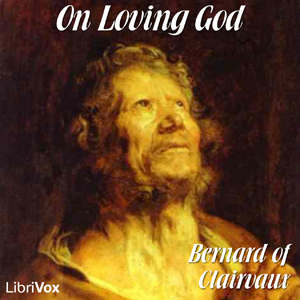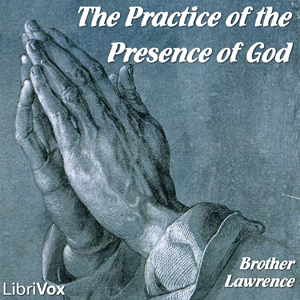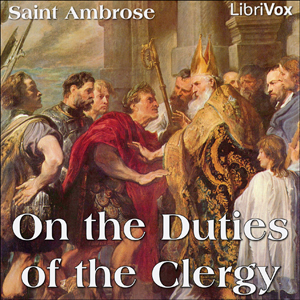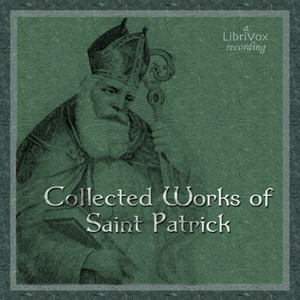- Preface to the Last Edition
- Book 1: State of Matters before the Reformation: Chapter 1: Christianity—Formation of the Papacy—Unity of the Church—The Decretals—Hildebrand—Corruption of Doctrine
- Book 1: Chapter 2: Grace and Works—Pelagianism—Penances—Indulgences—Supererogation—Purgatory—Taxation—Jubilee
- Book 1: Chapter 3: Relics—Easter Merriment—Corruption of the Clergy—A Priest's Family—Education—Ignorance
- Book 1: Chapter 4: Christianity Imperishable—Opposition to Rome—Frederick the Wise—His Character—His Anticipation
- Book 1: Chapter 5: The Empire—National Character—Switzerland—Italy—Spain—Portugal—France—Netherlands—England—Scotland—The North—Russia—Poland—Bohemia—Hungary
- Book 1: Chapter 6: State of Theology—Witnesses for the Truth—The Vaudois—Wickliffe—-Huss—Savonarola—John Wessel—Prolés
- Book 1: Chapter 7: Literature—Dante—Printing—Reuchlin—His Struggle with the Dominicans
- Book 1: Chapter 8: Erasmus—His Genius—His 'Praise of Folly'—His Greek Testament—His Influence—His Failings
- Book 1: Chapter 9: The Nobles—Hütten—'Letters of some Obscure Men'—Seckingen—Cronberg—Hans Sachs—General Fermentation
- Book 2: Youth, Conversion and First Labours of Luther (1483-1517): Chapter 1: Luther—His Parentage—The Paternal Roof—Strict Discipline—School—The Shunammite—His Studies—University
- Book 2: Chapter 2: Scholasticism and the Classics—Luther's Piety—His Discovery of a Bible—His Sickness—The Thunderstorm—His Entrance into a Convent
- Book 2: Chapter 3: His Father's Anger—Servile Employments—His Studies—The Bible—Hebrew and Greek—His Agony during Mass—Faints
- Book 2: Chapter 4: Staupitz—His Piety—His Visitation—His Conversation—Presents Luther with a Bible—The Old Monk—Luther's Consecration—His Call to Wittemberg
- Book 2: Chapter 5: The University of Wittemberg—Luther's First Employment—Biblical Lectures—Preaching at Wittemberg—The Old Chapel
- Book 2: Chapter 6: Luther's Journey to Rome—A Convent on the Po—Luther's Behaviour at Rome—Corruption of the Romish Clergy—Prevailing Immorality—Pilate's Staircase
- Book 2: Chapter 7: Doctor's Degree—Carlstadt—Luther's Oath—First Views of Reformation—The Schoolmen—Spalatin
- Book 2: Chapter 8: 'Popular Declamations'—Moral Purity of Luther—Mysticism—Spenlein—Justification by Faith—Necessity of Works
- Book 2: Chapter 9: First Theses—Visit to the Convents—Dresden—Erfurt—Tornator Peace and the Cross—Labours—The Plague
- Book 2: Chapter 10: Luther and the Elector—Duke George—Luther at Court—Dinner at Court - Emser's Supper
- Book 2: Chapter 11: Theses—Human Nature—Rationalism—Eck—Urban Regius—Luther's Modesty
- Book 3: The Indulgences and Theses (1517, 1518): Chapter 1: Cortège—Tezel—His Discourse—Sale of Indulgences—Public Penance—Letter of Indulgence—Feasting and Debauchery
- Book 3: Chapter 2: The Soul in the Burying-Ground—Shoemaker of Hagenau—Myconius—Stratagem—Miner of Schneeberg
- Book 3: Chapter 3:Leo X—His Necessities—Albert—His Character—Franciscans and Dominicans
- Book 3: Chapter 4: Tezel Approaches—Luther in the Confessional—Tezel's Rage—Luther's Discourse—The Elector's Dream
- Book 3: Chapter 5: Luther's Theses—Letter to Albert—Dissemination of the Theses
- Book 3: Chapter 6: Reuchlin—Erasmus—Flek—Bibra—The Emperor—The Pope—Myconius—The Monks—Adelman—An Old Priest—Bishop of Brandenburg—Luther's Moving Principle
- Book 3: Chapter 7: Tezel's Attack—Luther's Reply—Luther and Spalatin—Study of Scripture—Scheurl and Luther—Luther pleads for the People—A new Suit
- Book 3: Chapter 8: Disputation at Frankfort—Tezel's Theses—Knipstrow—Luther's Theses burnt—Tezel's Theses burnt
- Book 3: Chapter 9: Prierio—His Dialogue—Luther's Reply—Hochstraten—Eck—'The Obelisks'—'The Asterisks'
- Book 3: Chapter 10: Popular Writings—Lord's Prayer—Sermon on Repentance
- Book 3: Chapter 11: Apprehensions of Luther's Friends—Journey to Heidelberg—Bibra—The Palatinate Castle—The Paradoxes—Bucer—Brentz—Snepf—The Old Professor
- Book 4: Luther before the Legate (May-December 1518): Chapter 1: 'Solutions'—Leo X—Luther to the Bishop—To the Pope—To the Vicar-General—Rovere to the Elector—Discourse on Excommunication
- Book 4: Chapter 2: Diet of Augsburg—The Emperor to the Pope—Luther cited to Rome—Luther's Peace—Intercession of the University—Papal Brief—The Pope to the Elector
- Book 4: Chapter 3: Schwarzerd—His Wife—Philip Melancthon—His Genius—His Studies—Call to Wittemberg—Leipsic—Parallel between Luther and Melancthon—Education
- Book 4: Chapter 4: Luther and Staupitz—Order to Appear—Luther's Departure for Augsburg—Weimar—Nuremberg
- Book 4: Chapter 5: Arrival at Augsburg—De Vio—Serra-Longa—Safe-Conduct—Luther to Melancthon
- Book 4: Chapter 6: First Appearance—Conditions of Rome—Propositions to Retract—Luther's Reply—Impressions on both Sides—Arrival of Staupitz
- Book 4: Chapter 7: Communication to the Legate—Second Appearance—Luther's Declaration—The Legate's Reply—The Legate's Volubility—Luther's Request
- Book 4: Chapter 8: Third Appearance—Treasury of Indulgences—Humble Request—Legate's Rage—Luther Retires
- Book 4: Chapter 9: De Vio and Staupitz—Staupitz and Luther—Luther and Spalatin Communion—Departure of Staupitz and Link—Luther to Cajetan—Luther's Departure—Appeal to the Pope
- Book 4: Chapter 10: Luther's Flight—Luther's Wish—The Legate to the Elector—The Elector to the Legate—Prosperity of the University
- Book 4: Chapter 11: Thoughts of Departure—Adieus to the Church—Critical Moment—Luther's Courage—Discontentment at Rome—Papal Bull—Appeal to a Council
The History of the Reformation in the Sixteenth Century, by Jean-Henri Merle d’Aubigné, is a classic work on the great events that re-opened the Christian gospel to a needy world. It tells of how the twenty-year-old Martin Luther, browsing through books in the library at the University of Erfurt, takes down from the shelf a particular volume that has caught his interest. He has never seen anything like it. It is a Bible! He is astonished to find in this volume so much more than the fragments of gospels and epistles that were selected for public reading in churches. He had believed that these constituted all there was of the word of God. But here he has discovered, in its entirety, the inspired book from which they came. And it was this discovery, in a dusty university library, that changed the course of history.
D’Aubigné tells the story of outstanding people who had a love for God and his word, and who dared to present biblical truths which had been obscured for centuries. The book has helped and encouraged Christians through difficult times, and given them an understanding of the background from which our freedom in the faith has come.
The author was a Swiss Protestant pastor. He was also a historian with a great understanding of the Bible, along with a broad and deep knowledge of the Reformation. This great work of his is made up of five volumes. Volume 1, the subject of this recording, comprises four books: Book 1 – State of Matters before the Reformation; Book 2 – Youth, Conversion, and First Labours of Luther (1483-1517); Book 3 – The Indulgences and Theses; Book 4 – Luther before the Legate (May-December 1518).
D’Aubigné tells the story of outstanding people who had a love for God and his word, and who dared to present biblical truths which had been obscured for centuries. The book has helped and encouraged Christians through difficult times, and given them an understanding of the background from which our freedom in the faith has come.
The author was a Swiss Protestant pastor. He was also a historian with a great understanding of the Bible, along with a broad and deep knowledge of the Reformation. This great work of his is made up of five volumes. Volume 1, the subject of this recording, comprises four books: Book 1 – State of Matters before the Reformation; Book 2 – Youth, Conversion, and First Labours of Luther (1483-1517); Book 3 – The Indulgences and Theses; Book 4 – Luther before the Legate (May-December 1518).
There are no reviews for this eBook.
There are no comments for this eBook.
You must log in to post a comment.
Log in











